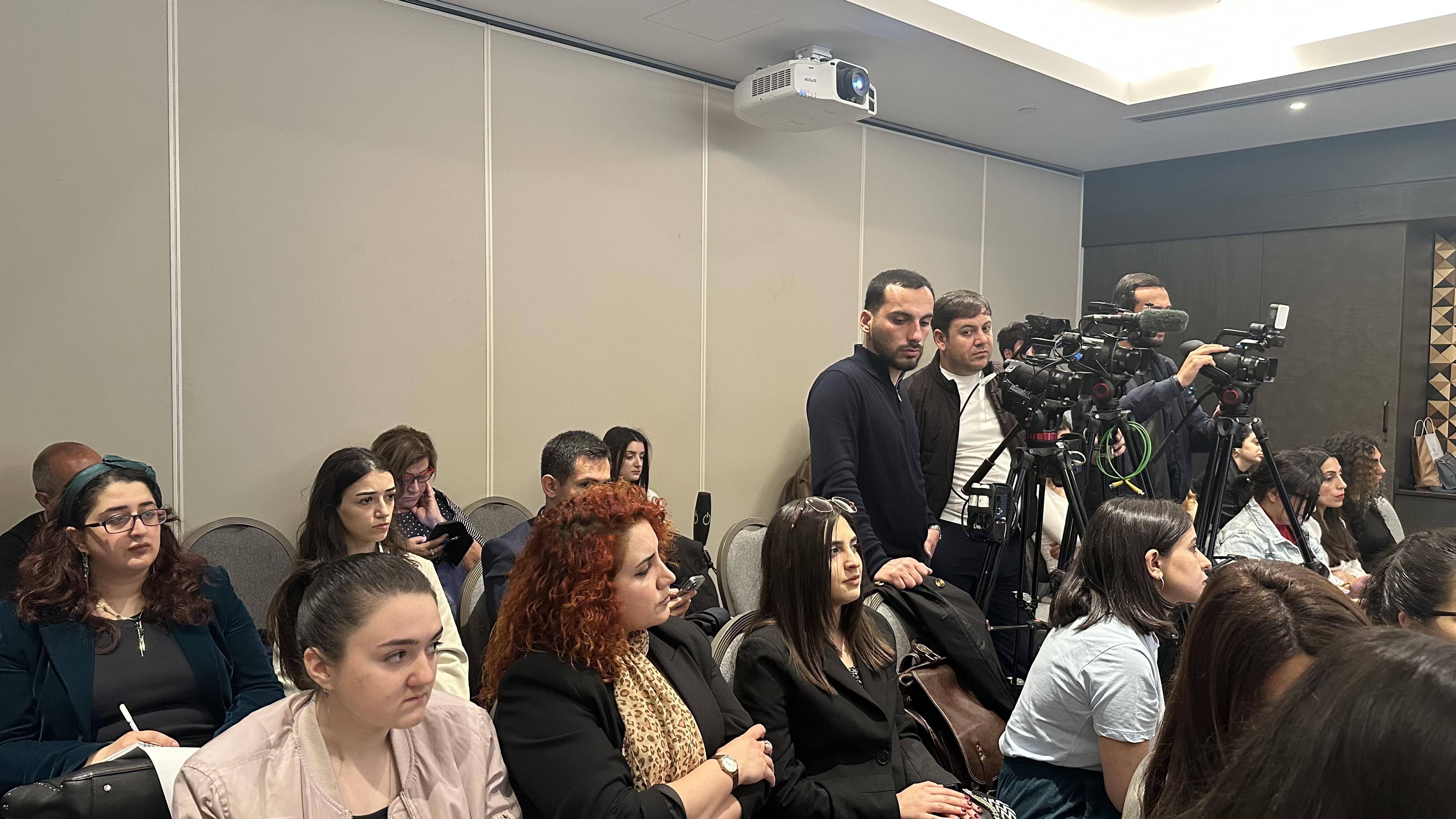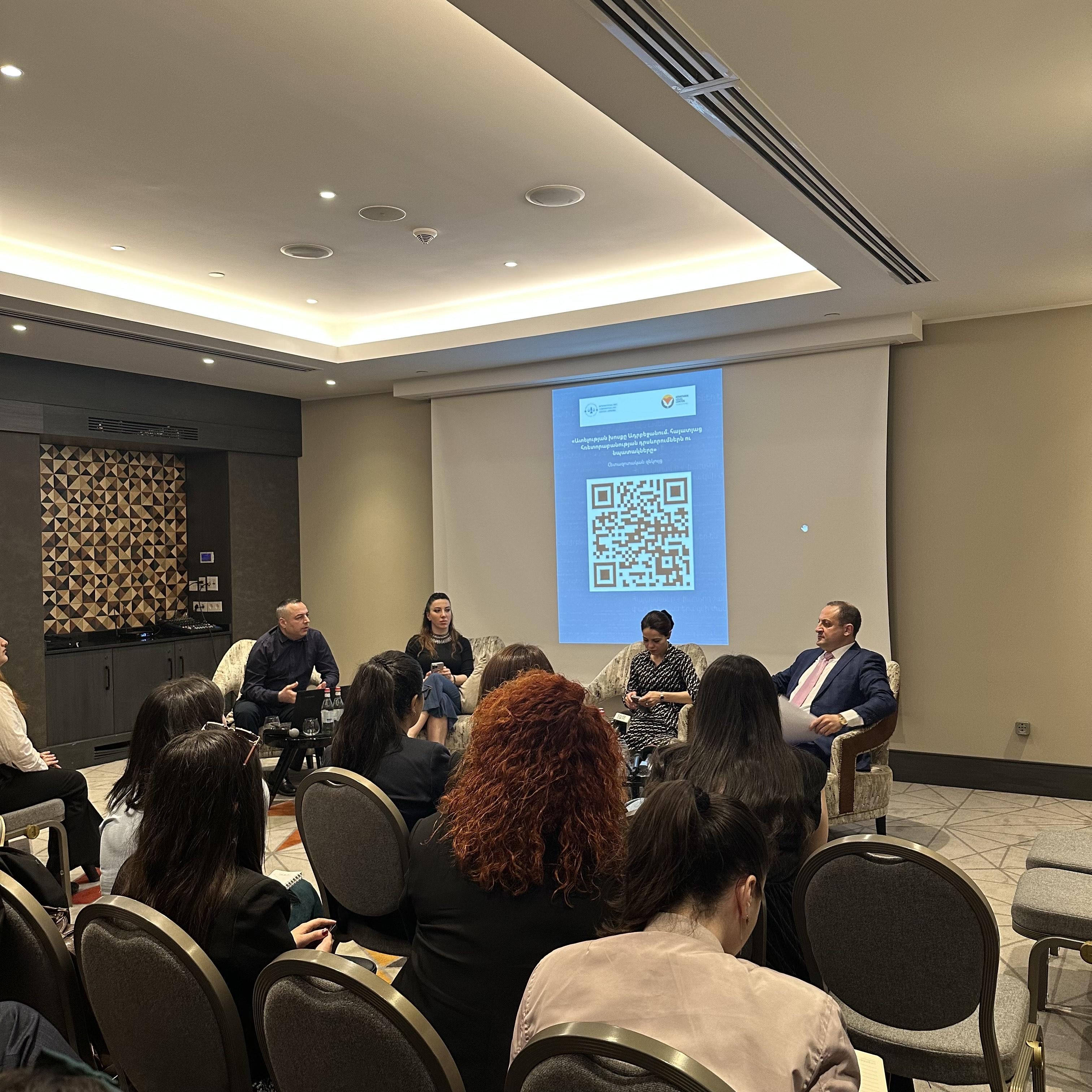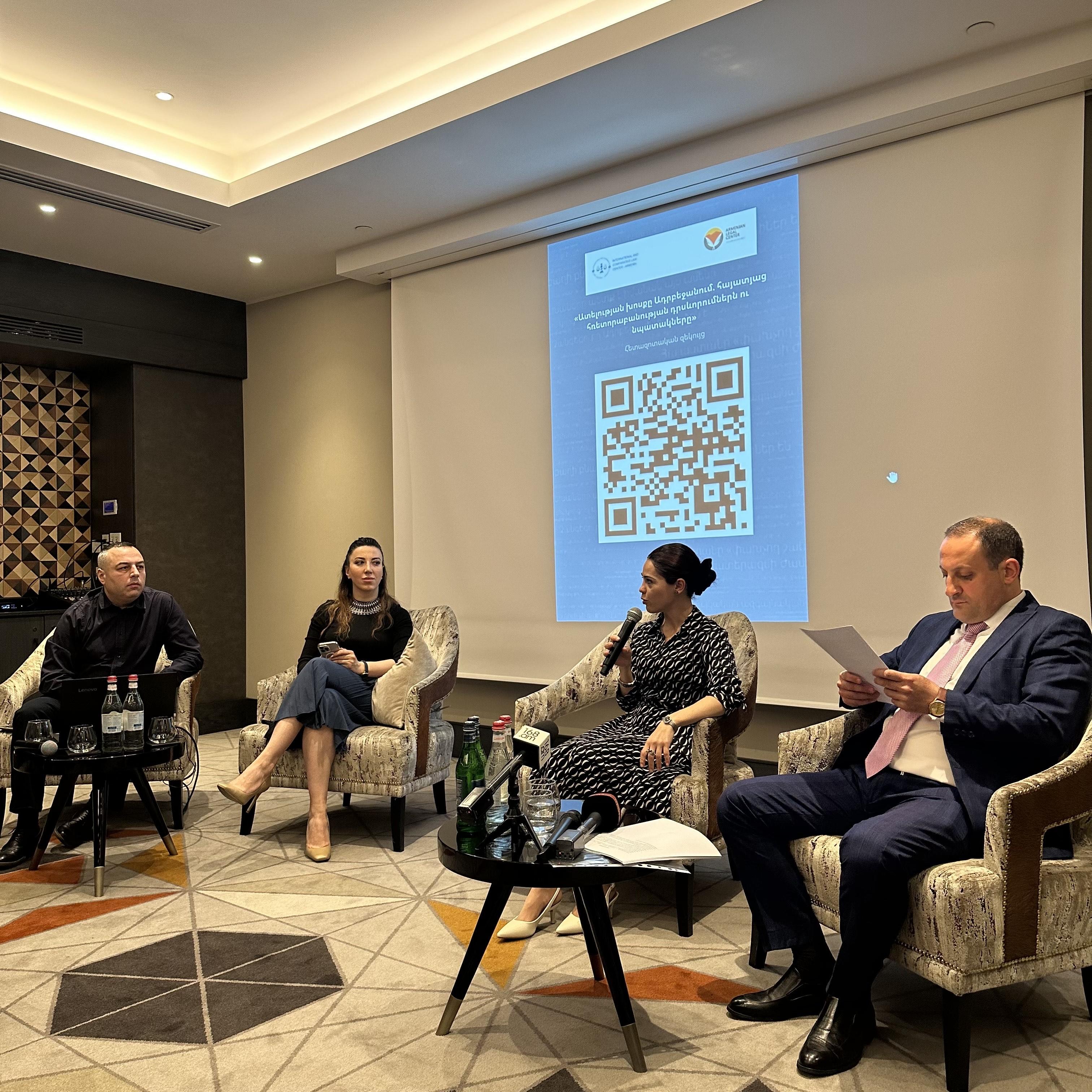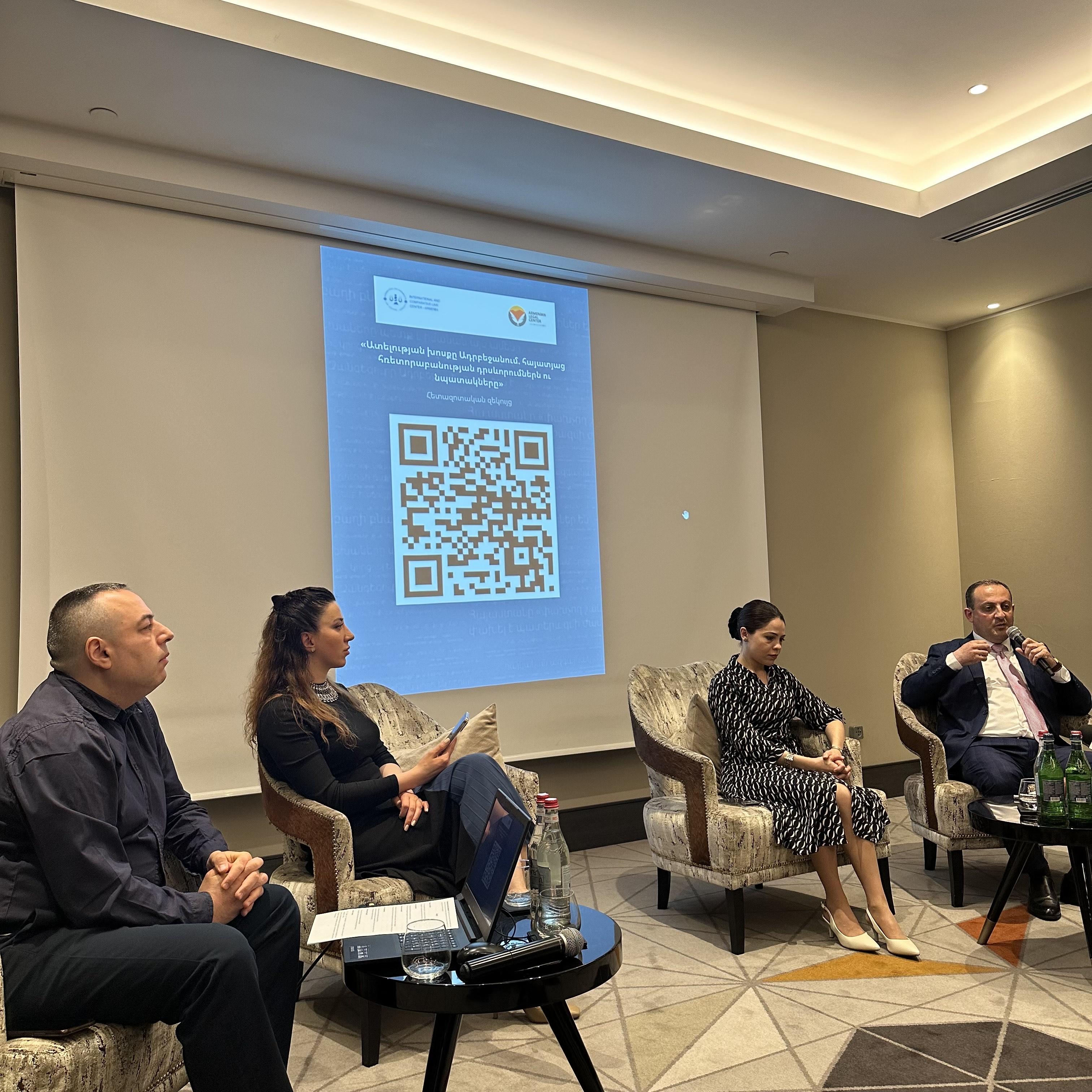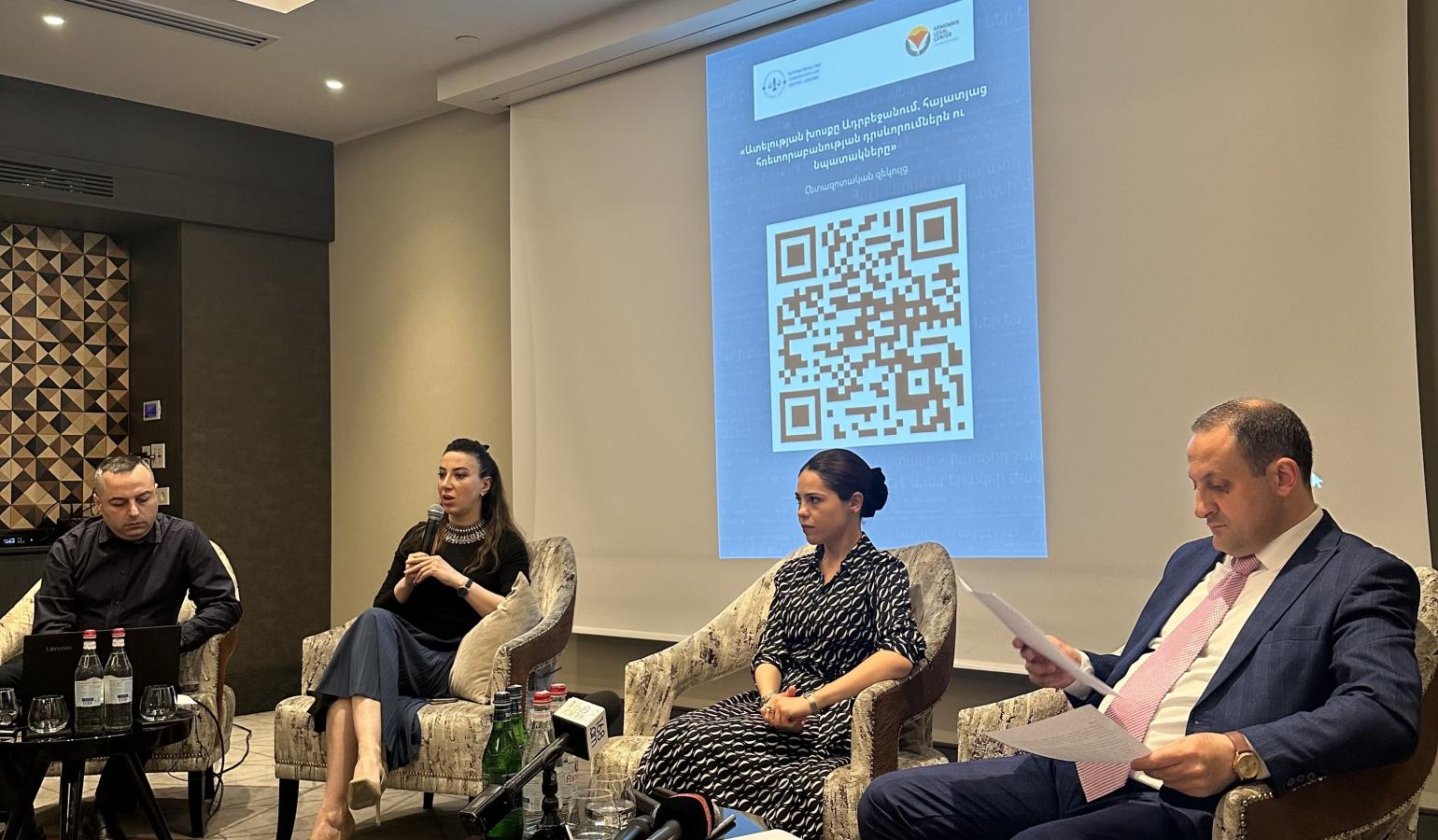
Panel Discussion Held on Report about Hate Speech Against Armenians in Azerbaijan
A panel discussion was held on the report titled "Hate Speech in Azerbaijan: Manifestations and Objectives of Anti-Armenian Rhetoric." The report studied publicly accessible discourse about Armenians in Azerbaijan during the period from April 1, 2023, to March 31, 2024.
The purpose of the research was to analyze and understand the most common theses and narratives of hate speech targeting Armenians, how these are interconnected, which international legal regulations are violated when hate speech is expressed, and to what extent these violations lay the groundwork for ethnic cleansing, genocide, and crimes against humanity.
To discuss the report and raise public awareness, the Center for International and Comparative Law organized a panel discussion. The speakers included the Head of the Center, Siranush Sahakyan, Azerbaijan expert Tatevik Hayrapetyan, and political analyst Stepan Hasan-Jalalyan.
The fight against hate is one of the biggest challenges in interethnic relations. According to Siranush Sahakyan, there is a direct link between hate, conflicts, and violations of human rights.
“Any peace agenda must also involve the elimination of manifestations of hatred. While there are numerous international regulations in place, there is no unified definition. Definitions are provided within frameworks such as the UN and the Council of Europe. Generally speaking, any form of expression that incites violence, hatred, or discrimination against a person or a specific group based on certain characteristics is considered hate speech. These characteristics are usually based on national, ethnic, or religious identity,” she noted.
Hate speech aims to generate negative attitudes and stereotypes toward specific groups. One of its main manifestations is the use of demeaning labels. For example, in the rhetoric of Azerbaijani politicians, political scientists, and media, Armenians are referred to as “enemies,” “cowards,” “genocidal,” “murderers,” “fascists,” “criminals,” “clowns,” and “dogs,” while Armenian servicemen are labeled as “deserters.” The expression “the dirty trace of Armenians” is also used.
Such expressions referring to Armenians are widespread not only in political, media, and academic circles but also in the educational system, including school textbooks.
Azerbaijan expert Tatevik Hayrapetyan addressed Azerbaijani history textbooks for 5th and 8th grades, where the term “Western Azerbaijan” is actively used.
“This is a clearly developed expansionist plan, already being taught not only in general education schools but also in universities, including the National Academy of Sciences and the State Pedagogical Institute. This rhetoric rules out the possibility of peace, neighborly relations, or reconciliation with Armenia,” said Hayrapetyan.
“Hate speech goes hand in hand with expansionist programs, as historically, campaigns of hatred have preceded ethnic cleansing, forced displacement, genocidal acts, and aggressive wars. The continuation of such campaigns after 2020 demonstrates that Azerbaijan harbors dangerous plans, which, unfortunately, are either not fully recognized or not properly represented within our society,” said Hayrapetyan.
Hayrapetyan also discussed the evolution of hate speech in Azerbaijan, stating that it has intensified significantly after the 44-day war in 2020.
Speaker Stepan Hasan-Jalalyan presented on the hate speech generated during Soviet and post-Soviet periods in Azerbaijan. He emphasized that all Azerbaijani governments have pursued a consistent policy of hate and discrimination against Armenians—sometimes through soft power, sometimes through brute force.
“The more we follow the activities of Azerbaijani public and political figures, and media representatives, the more evident it becomes that the anti-Armenian rhetoric is not subsiding but rather intensifying. In the foreseeable future, we will continue to witness actions driven by hate speech and discriminatory policies against Armenians,” said Sahakyan.
The panel discussion also addressed the legal and political aspects of the Nagorno-Karabakh conflict resolution. Participants had the opportunity to ask questions to the authors of the report.
The report was prepared by the Center for International and Comparative Law with the support of the Armenian Legal Center for Human Rights and Justice.
During the panel, the key findings of the report and the most concerning manifestations of anti-Armenian rhetoric were discussed. In the final part of the event, the speakers answered questions from the audience.

